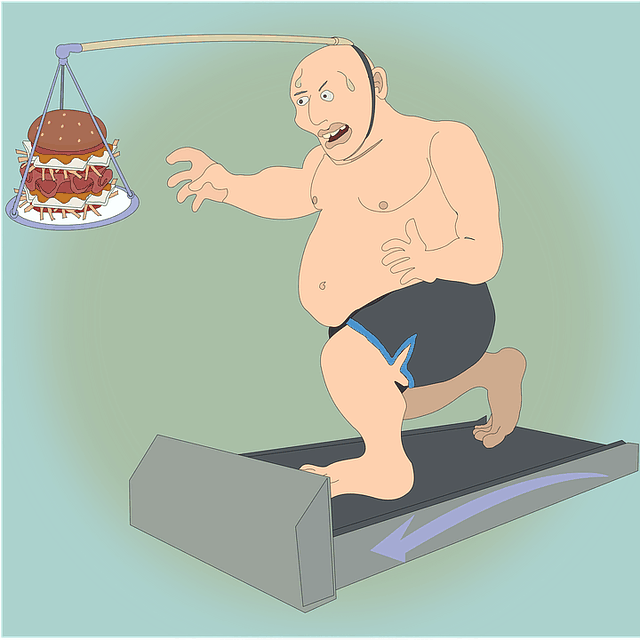What is Obesity?

Obesity is a condition in which excess body fat is stored, caused by a lack of physical activity and an increase in calories consumed and burned over a longer period of time. Being overweight puts more strain on the musculoskeletal system and leads to the development of chronic diseases such as heart disease, diabetes, cancer and obesity.
Obesity is a serious disease that affects millions of people worldwide every year. Worst of all, although it is a preventable disease, it affects children and adults alike.
Is Obesity a Disease?
Obesity is now widely recognized as a disease, and the medical community has come together to treat, manage, and prevent the need. The increasing incidence of obesity around the world has led more and more people to turn to health experts for advice on obesity and other related diseases – morbidity that result from being overweight.

Diet also plays an important role in controlling obesity, as the extra calories that are left over after eating heavy meals are usually stored as fat in the body. Here, too, the latest technology developed by scientists has found a way to destroy fat cells.
Research on Obesity and Physiotherapy
As obesity research continues, physiotherapist can play an important role in helping combat obesity. In addition to supplementing dietary physical activity, cognitive therapy can also be more effective in preventing relapses. So there may be a greater role for physiotherapists in treating obese patients in the future. Should Physical therapists be included when treating obesity?
As you may know, obesity is associated with a myriad of chronic ailments and can be a source of immense physical pain. There are many ways to treat the disease as a whole, coupled with proper nutrition, but Miller and Alpert (24) stress that obesity is widespread at the health professional level.

Physiotherapists are well positioned to facilitate the physical activity required to manage patients “weight. People who are obese often suffer from a range of diseases such as diabetes, high blood pressure, heart disease, diabetes and obesity. In the 5-11 age group, obesity is the number one cause of death in the United States and the second leading cause in Europe. Anchored in a range of relevant areas, they sound like the perfect complement to the role of a physiotherapist in the prevention and management of obesity.
Physical Activity, Physiotherapy and Obesity
Although exercise and physical activity play an important role in treating obesity, physiotherapists must also be aware of the secondary conditions that result from obesity. While physical activity is seen as an important solution to curb obesity, physical activity is not the only one, and a multidimensional approach is advisable. Physiotherapist in the care of patients who are physically inactive, such as those with severe obesity, which hinders their ability to perform activities.

They have developed a low-intensity program to help weight loss patients so they can embark on a healthy life journey without hurting themselves. Previously I had mentioned how physiotherapy can help you beat obesity, get healthy and fitter, and maintain your weight.
They offer a range of services to avoid obstacles to physical activity and to address the need to promote physical and mental health and well-being and to enable obese people to exercise and function as well as possible. According to the World Health Organization (WHO), more than two-thirds of people between the ages of 5 and 11 are overweight or obese and engage in fewer physical activities such as walking, running, cycling and cycling.
Physiotherapists have the ability to develop a range of strategies to combat obesity, such as diet, exercise, diet and physical activity.
Patients who have difficulty living with their condition can achieve the desired result and obtain a favorable patient experience by using the services of a physiotherapist. Wiklund and Co. 24, found that more than 80% of obese people in the United States and Canada still have social, physical, and psychological barriers that prevent them from doing physical activity, often associated with side effects of increased physical activity support. An assessment and treatment plan by a physiotherapist will help overcome these hurdles.
Patients with musculoskeletal disorders, which are particularly common in bariatric patients, should also be referred to a physiotherapist with experience in the treatment of their disease.
Conclusion
Today, there are numerous options for treating obesity, including calorie-reduced diets, physiotherapy, exercise therapy, and bariatric surgery. Physiotherapists are experts in physical exercise and have developed physiotherapy programs for people who are overweight or obese to manage weight and prevent the development of obesity. Physiological therapy programmes support the use of exercise to prevent further complications associated with obesity and inactivity such as heart disease, diabetes and cancer.

Note that, if possible, a physiotherapist with experience in the treatment of other musculoskeletal disorders such as osteoarthritis is also recommended.
Medical options to change your lifestyle include more exercise, diet, physical activity, exercise therapy and physical therapy. Individuals undergoing bariatric surgery are also examined by a physiotherapist and undergo a follow-up visit at least once a month. Those who have reduced activity or co-morbidity associated with obesity should be referred to a physiologist for further assessment and treatment, especially if they have undergone surgery.
